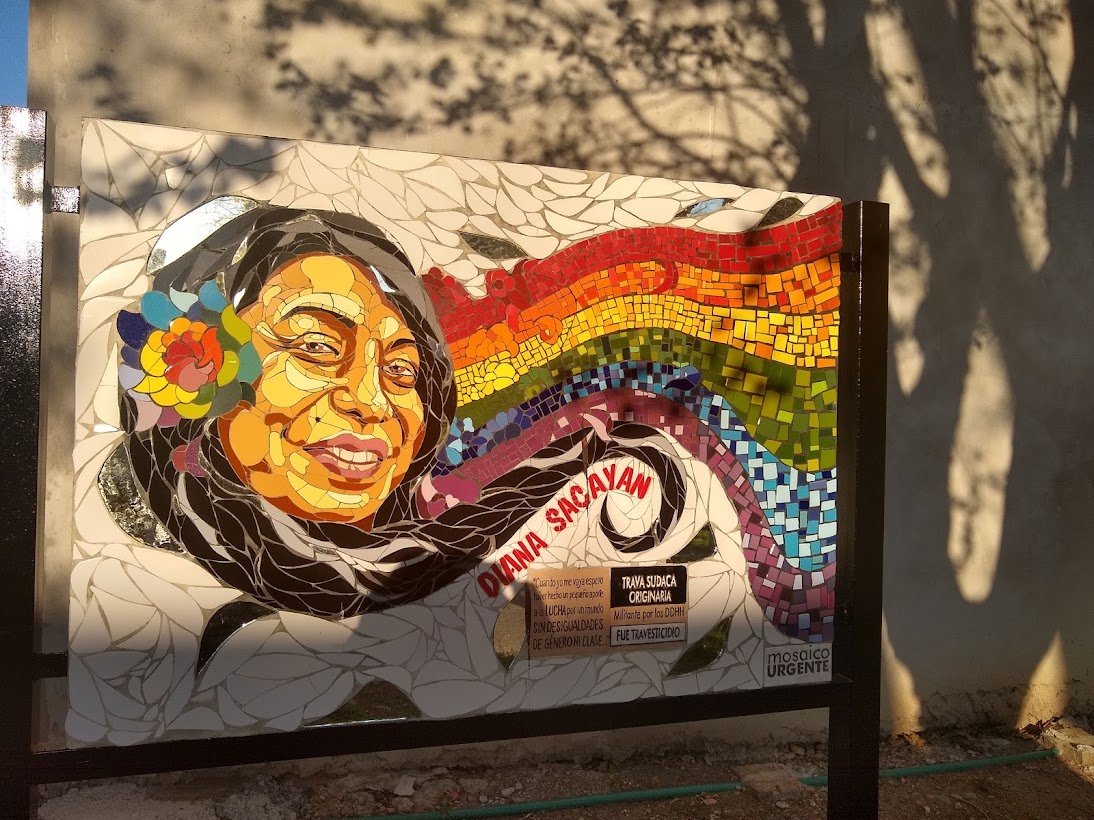Our Team
RIAF is coordinated by a group of academics, artists, and activists from across the Américas.
-
Claire Branigan es una antropóloga cultural que se especializa en la antropología legal y política. Su área de investigación se enfoca en cuestiones de justicia social y jurídica en casos de violencia de género y el feminicidio en América Latina. Ha realizado una investigación de largo plazo con familiares de víctimas de femicidio en Argentina que explora las diversas maneras de concebir, imaginar y crear justicia en un contexto de impunidad.
Actualmente es docente en el departamento de Literatura y Culturas y el Programa de Estudios de Mujeres, Género, y Sexualidades en Rice University, Houston, Texas.
-
Dabney Evans, PhD, MPH is an Associate Professor of Global Health in Emory University’s Rollins School of Public Health. She is a mixed-methods researcher focused on the health and human rights of women and girls. Dr. Evans received her Master of Public Health degree in 1998 from Emory University and her doctoral degree in law from the University of Aberdeen (UK) in 2011. Dr. Evans’ current research projects focus on gender-based violence, and sexual and reproductive health and rights. Her global research portfolio includes projects on: intimate partner violence during the COVID-19 pandemic (US); the commercial sexual exploitation of children (US); femicide prevention (Brazil); and femicide perpetration (Argentina). Dr. Evans has published over forty book chapters, scholarly articles and commissioned works; she has made over 200 peer-reviewed and invited presentations. Her public scholarship has appeared in the Pacific Standard, the Atlanta Journal Constitution, Ms. Magazine and The Hill, where she is a regular contributor; in 2015 she presented a TEDx talk.
-
Martín Hernán Di Marco is a sociologist and epidemiologist, and currently a PhD candidate from the National Scientific and Technical Research Council (CONICET), Argentina. He has teaching positions in Buenos Aires University and La Matanza National University. He has been awarded grants and scholarships from SVRI, Colef and London School of Hygiene and Tropical Medicine, amongst other instituciones. He conducts research on violence, masculinities and violent deaths, by studying the biographies of perpetrators.
-
Dolores Figueroa Romero is a researcher at the Center for Research and Advanced Studies in Social Anthropology (CIESAS) in Mexico City. Dr. Figueroa’s academic expertise focuses on conceptualizing structural, social and extreme violence against indigenous women in rural areas and critically dialoguing with the anti-racist feminist advocacy work in Mexico. During the last two years, she was part of an initiative aimed at creating networks between social researchers, technicians and indigenous women’s organizations, such as the National Coordination of Indigenous Women of Mexico (CONAMI) to strengthen their community initiative called “Community Emergency of Violence” to build a database to document various types of violence that impact indigenous women and their peoples in various regions of Mexico.
Dr. Figueroa has published numerous articles in refereed academic journals and chapters in edited volumes on violence against indigenous women in Guerrero, such as: “Defensoras comunitarias, violencias múltiples y búsqueda de justicia en territorios indígenas Tlapa de Comonfort, Guerrero” 2020, with María Teresa Sierra and Marisol Alcocer; “Anti-Manual for conducting workshops with survivors of grave human rights violations through a territorial and participatory focus”; with Teresa Sierra Camacho (2020) “Alertas de género y mujeres indígenas: interpelando las políticas públicas desde los contextos comunitarios en Guerrero, México,” in the Canadian Journal of Latin American and Caribbean Studies; (2019) “Políticas de Feminicidio en México: Perspectivas interseccionales de mujeres indígenas para reconsiderar su definición teórica-legal y las metodología de recolección de datos” in Journal of International Women’s Studies.
-
Doctora en antropología por el Centro de Investigaciones y Estudios Superiores en Antropología Social (CIESAS). Investigadora posdoctoral en el Centro de Investigaciones Interdisciplinarias en Ciencias y Humanidades (CEIICH-UNAM). Maestra en Estudios de Género por El Colegio de México. Licenciada en sociología por la UNAM. Miembro del Sistema Nacional de Investigadores e Investigadoras (SNII) nivel candidata. Sus tesis de licenciatura y doctoral recibieron mención honorífica y la última, recomendación para publicación. Ha sido docente en la Escuela Nacional de Antropología e Historia (ENAH) y profesora invitada en diplomados, cursos y seminarios, en universidades públicas e instituciones gubernamentales del país. Ha colaborado en proyectos de investigación académica de los Programas Nacionales Estratégicos (PRONACES-CONACYT) y en el Programa de Apoyo a Proyectos de Investigación e Innovación Tecnológica (PAPIIT-UNAM) en temáticas de feminismo y revitalización lingüística. Integrante del Comité de Investigación del Observatorio Coyuntural Antropológico (OCA) y de la Red Interamericana Anti-Femicidio (RIAF). Ha coordinado múltiples seminarios e impartido ponencias en diversas instituciones, incluida Harvard University. Así mismo, ha realizado informes, materiales pedagógicos y metodologías con el Alto Comisionado de las Naciones Unidas (ONU-DH), el Observatorio Ciudadano Nacional de Feminicidio (OCNF) y Justicia Pro-Persona (JPP); así como peritajes en antropología para casos de violencia contra las mujeres. En materia de publicaciones, ha fungido como coordinadora de libros, cuenta con capítulos de libros, en revistas indizadas nacional e internacional, así como material de divulgación y difusión científica. Entre sus líneas de investigación se encuentran: feminismo y género, violencia feminicida, interseccionalidad, juventud y políticas públicas.
